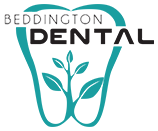
Extensive tooth loss or decay can take a big toll on you. It is not just your smile that is affected, but your self-confidence. It only takes a knowledgeable dentist to help you overcome the severe tooth decay or loss to institutionalize a restoration procedure.
When it comes to a full-mouth restoration, it is about more than replacing one or two teeth. Patients who require full mouth restorations are often in need of a complete personalized and extensive transformation. The restorations of full mouth in Calgary cannot involve one procedure. Often, full mouth restorations call for a combination of cosmetic and restorative dentistry procedures.
What is full mouth reconstruction?
Full mouth reconstruction treatment plan performed on patients who have several oral health needs. After diagnosis by a dentist, it is easy to determine how extensive and severe the dental damage on a patient is. This treatment encompasses different restorative treatments that work together to achieve an overall dental transformation. The treatment is different for patients because it is tailored to their individual dental needs.
Full mouth restoration is a long dental treatment process. This is why it takes place in different stages. The stages you go through as a patient are determined by your oral health needs. For example, if you need root canal therapy, dental fillings, crowns, and Onlays, the procedures cannot all be performed in one day. After a dental exam, your dentist will come up with a treatment plan for the restoration. The dentist will then recommend which procedure goes first to commence the treatment.
Which procedures are part of the personalized full-mouth restoration treatment?
Several procedures can be performed on you depending on the nature of your oral problems. Some patients need more procedures than others. For the restoration treatment plan to be complete, at least two of the following procedures have to be performed:
- Dental Crowns
Dental crowns are tooth-shaped caps that are used to cover the top of a damaged tooth. The caps are commonly used when the enamel of a tooth is greatly compromised and cannot sustain the dental needs of the patient.
- Dental fillings
After a cavity treatment on your tooth, dental fillings are used to seal the space created when drilling a hole in your tooth. Fillings offer support to such a tooth, as well as offer a solution for cavities.
- Inlays and Onlays
When you have minor damages on your teeth, for example, a crack, chip or minor cavity, you need these types of fillings. A dentist will either use dental Inlays or Onlays.
- Tooth implants
When you have a missing tooth and you still need a dental crown for other teeth, tooth implants are used. They are titanium posts installed in your jaw through surgery to provide support to crowns.
- Dental bridges
Bridges are a dental solution to missing tooth. They are anchored by tooth implants, or dental crowns fitted on neighboring teeth.
- Braces, Invisalign®, and other aligners
Orthodontists use different types of aligners to straighten teeth and correct bites. Such orthodontic solutions include using traditional braces, or Invisalign®.
- Teeth whitening
Discolored teeth are not uncommon for patients that require a personalized full-mouth restoration. Teeth whitening can correct the discoloration and restore aesthetic appeal to patients.
What determines candidacy for this treatment?
As determined above, several procedures can be involved in transforming your dental formula. There are even more procedures that a dentist or orthodontist might consider necessary for your situation. Some include root canal therapy, bone grafting, TMJ treatment, to mention a few.
Given the comprehensive needs of a personalized full-mouth restoration, not every patient can go through the treatment. For one, the treatment requires more than one procedures, which means patients might have to visit the dentist frequently. Some factors that are considered for this treatment include:
- The overall health of a patient – you have to be healthy all around to go through the treatment.
- Age – older patients may not qualify for the treatment. There are many risks involved with this that do not work well for old people.
- Free from blood disorders – the procedures for this treatment involve surgical processes that may not sit well with patients suffering from any blood disorders.
Summary
Personalized full-mouth restoration involves treating and repairing close each tooth in your mouth. It is not just a cosmetic procedure, but useful for addressing several oral health problems.
